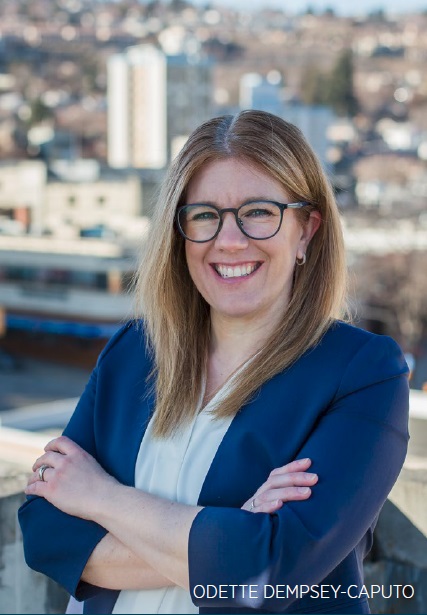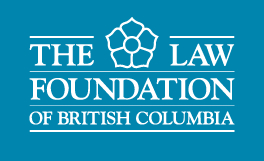New legal clinics step up
PROVIDING AUGMENTED SERVICES DURING CHALLENGING TIMES
For years, British Columbia has lacked an important asset that provides significant benefits to people in other large provinces like Alberta and Ontario — a network of legal clinics serving low income people. While the Law Foundation’s network of poverty law advocates provided important support for clients dealing with income assistance, housing, and other legal challenges, they did not displace the need for specialized lawyers able to represent clients in court and at tribunals, appeal decisions, and manage complex cases. Now, as a result of a funding partnership between the Law Foundation and the Province, new regional Poverty Law Clinics are able to provide these services.
In 2018, the Law Foundation piloted the idea of funding legal clinics by placing a staff lawyer in an existing advocacy program: Victoria’s Together Against Poverty Society (TAPS) was awarded a three-year grant to pilot the idea of adding a staff lawyer to their team to help clients with issues relating to disability benefits, employment standards, and tenancy issues. In 2019, the Province built on this initiative, announcing that it would partner with the Foundation to create four new regional Poverty Law Clinics housed in community-based agencies already offering legal advocacy services.
These clinics were just getting off the ground when the COVID-19 pandemic struck, making access to legal support more essential as unemployment numbers skyrocketed, and housing became precarious for thousands across the province. The new clinics were able to adapt and rise to the challenge.
Daniel Jackson, the staff lawyer at TAPS, worked with the agency as an advocate for several years before transitioning into his new role. As the pandemic wore on, Jackson noticed there was an uptick in the need for legal support with tenancy-related issues, as well as access to information.
“I pivoted my role in the clinic a bit to try to meet some of the need around the CERB, and to address people’s economic uncertainty around their housing, their work, and the government benefits available.”
Jackson said the clinic shifted “seamlessly” to a remote office most of the time, while still maintaining some in-person hours for clients without access to technology.
 In Kamloops, Odette Dempsey-Caputo, staff lawyer at the Elizabeth Fry Legal Clinic, had also just begun to establish her new clinic’s presence when she was forced to put a pause on in-person visits and community meetings. Nonetheless, Dempsey-Caputo is proud that the clinic has provided services throughout the pandemic — especially because the community saw an increase in clients needing assistance with human rights and employment issues. Despite the restrictions, the clinic still helped a far greater number of clients than anticipated over the course of 2020.
In Kamloops, Odette Dempsey-Caputo, staff lawyer at the Elizabeth Fry Legal Clinic, had also just begun to establish her new clinic’s presence when she was forced to put a pause on in-person visits and community meetings. Nonetheless, Dempsey-Caputo is proud that the clinic has provided services throughout the pandemic — especially because the community saw an increase in clients needing assistance with human rights and employment issues. Despite the restrictions, the clinic still helped a far greater number of clients than anticipated over the course of 2020.
“We actually didn’t end our services at all — we worked from home, but we were able to serve our clients throughout,” she said.
Sharon Kearney, staff lawyer at the Community Law Clinic at SOURCES Legal Resource Centre in the Fraser Valley, also said that shutdowns did not stop high numbers of clients coming to the clinic, especially those seeking housing and tenancy support.
In the brief time the clinic has been open, Kearney is proud of the change they have been able to make. In one case, she was able to prevent a frontline health worker, who had waited years to get a spot in a housing co-op, from being evicted.
Kearney said the response from the larger community has been overwhelmingly positive.
“Often we get emails from clients saying, thank you so much, you saved my life. Or you saved my living situation,” she says. “It’s just a wonderful feeling giving back to the community.”

